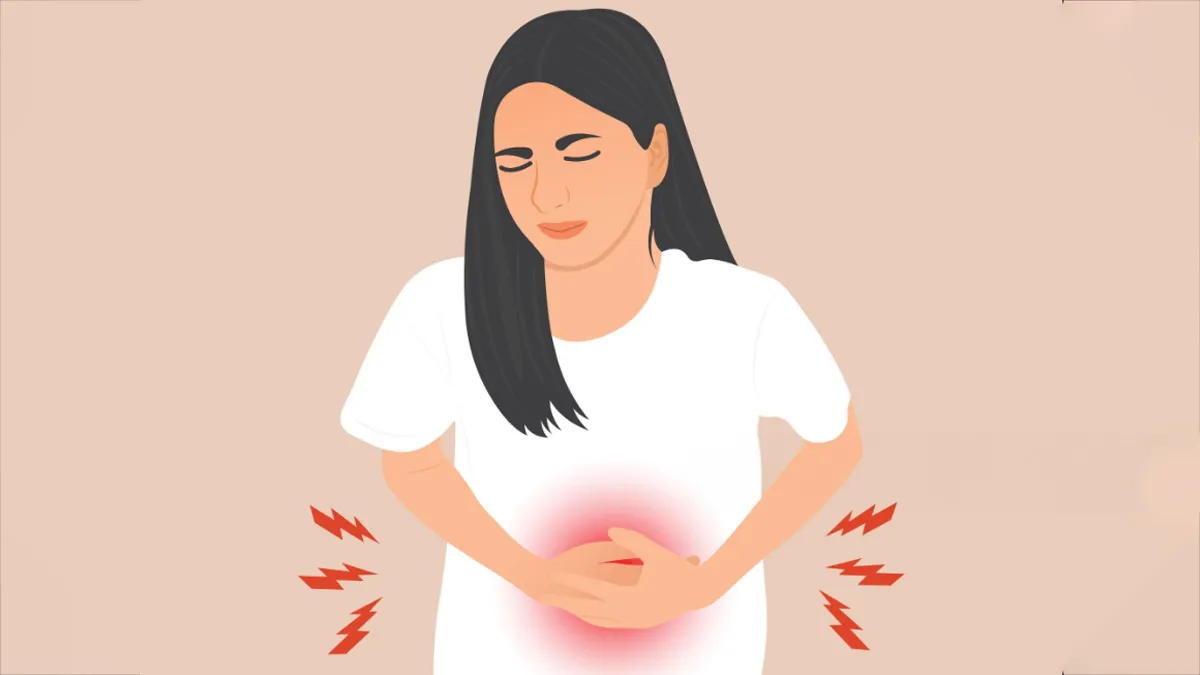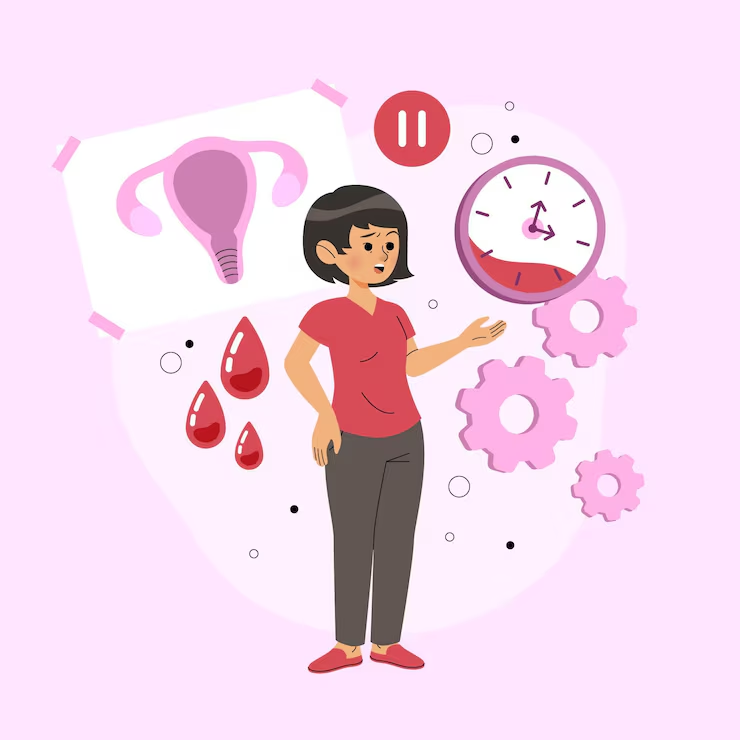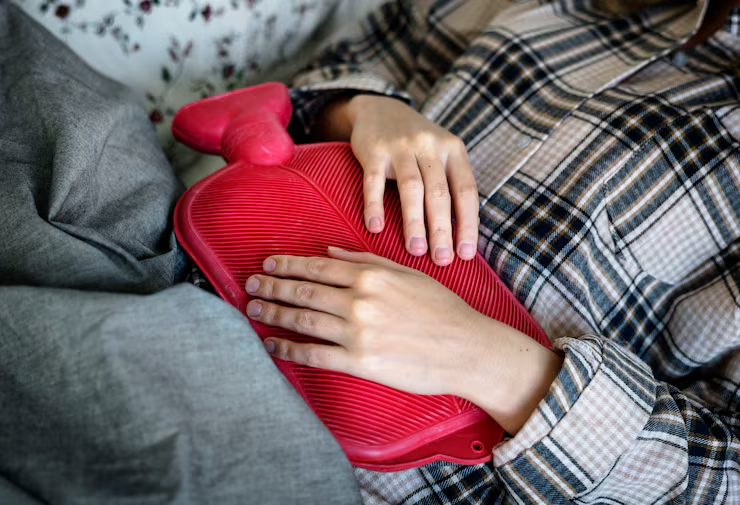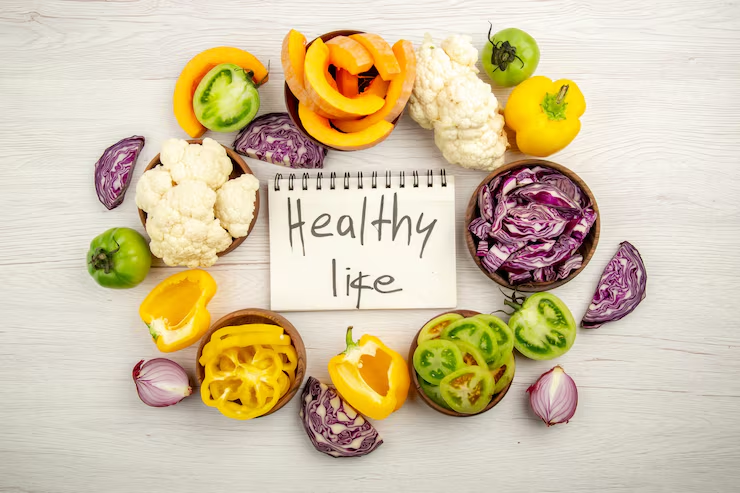
Why Your Stomach Feels Bloated During Your Period: Many women experience bloating and a heavy feeling in their stomach during their periods, and it’s one of the most common discomforts of the menstrual cycle. This swelling can make clothes feel tighter, cause mild cramps, or simply make you feel puffed up. While it is completely normal, understanding why it happens can make it easier to manage. We spoke with Dr Mannan Gupta, Chairman - Obstetrics & Gynaecology, Elantis Healthcare, Delhi, to understand exactly why many women feel that familiar tightness or bloated tummy when they're on their period.
One of the main reasons for bloating during your period is hormonal change. Just before your period starts, estrogen levels rise, causing your body to retain more salt and water. Dr Mannan Gupta highlights, “Progesterone levels then drop, which can further slow down digestion. This combination makes your body hold extra fluid, leading to a puffier, bloated feeling in the stomach.”
These hormones influence how your body regulates fluid. In particular, oestrogen can make you retain more salt and water, which expands tissues and leads to that puffed up feeling.

Progesterone, which rises during certain stages of the menstrual cycle, slows down the muscles in your gut. This means your intestines move food more slowly as your period approaches, causing:
Gas buildup
Constipation
Feeling of fullness
All of this directly contributes to abdominal bloating.
“Many women experience heightened sensitivity during PMS. Even small amounts of gas or fullness may feel exaggerated. This is because hormonal changes affect the gut-brain axis, making the digestive system more reactive”, says Dr Mannan Gupta. Prostaglandins, chemicals released to help the uterus contract and shed its lining, can affect the gastrointestinal tract as well. Higher levels can cause:
Cramps
Loose stools or diarrhoea in some women
Gas and bloating in others
This explains why digestive issues and bloating often go hand-in-hand with periods.

What you eat and do during your cycle can worsen or lessen bloating. For example:
Cravings for salty or sugary foods around your period can increase water retention.
Carbonated drinks, processed snacks, and spicy foods may produce more gas.
Stress, lack of sleep, and less movement can magnify bloating.

Don't miss: AMH (Anti-Müllerian Hormone) Explained: What It Means for Fertility and How to Boost It Naturally
Dr Mannan Gupta advises a few simple, effective strategies to reduce bloating:
Stay hydrated: Drinking enough water reduces water retention.
Limit salt and processed foods: Helps prevent fluid buildup.
Eat fibre-rich foods: Fruits, vegetables, and whole grains support smoother digestion.
Exercise regularly: Even light walking helps reduce water retention and bloating.
Try warm compresses: This relaxes abdominal muscles and eases cramps and tightness.
Avoid excess caffeine and carbonated drinks: They can worsen gas and bloating.
Don't miss: 7 Early Signs Of Haemorrhoids During Pregnancy You Shouldn’t Ignore
While most period-related bloating is harmless, there are times to consult a professional. Our expert emphasises that you should seek advice if:
The bloating is very severe or persists well beyond your period.
You experience extreme pain, or other symptoms like unusually heavy bleeding, or bloating outside your cycle.
There are signs of a possible underlying condition, such as endometriosis, fibroids, or hormonal imbalance.
Feeling bloated during your period is a common and usually normal part of the menstrual cycle. It comes down to natural hormonal shifts, fluid retention, and the way your gut reacts. By making a few lifestyle changes you can often ease the discomfort. And if things seem off, seek help from your gynaecologist.
For more such stories, stay tuned to HerZindagi.
Image credit: Freepik
Also watch this video
Herzindagi video
Our aim is to provide accurate, safe and expert verified information through our articles and social media handles. The remedies, advice and tips mentioned here are for general information only. Please consult your expert before trying any kind of health, beauty, life hacks or astrology related tips. For any feedback or complaint, contact us at compliant_gro@jagrannewmedia.com.